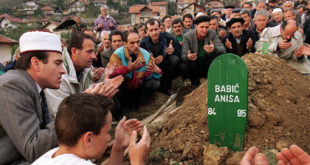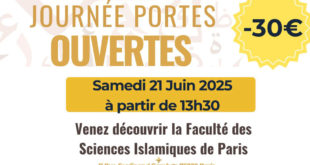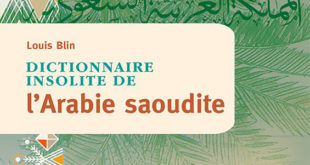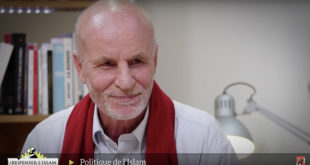
Zaur Sadigbayli is a historian, political lawyer and journalist. With a degree in Political Science, Public Law, Modern and Contemporary History, he worked in the Council of Europe. He participates in numerous debates and roundtables on the conflict between Azerbaijan and Armenia.
My name is Zaur.
I was born on September 15, 1976 in Yerevan, then RSS of Armenia, Republic of Armenia today.
My Father, Nussrat Maharram oglu Sadigov, was like all his ancestors Turks Azerbaijani, native to this region called West Azerbaijan ,formed from theancient Khanats (Turkish or Mongolian Kingdoms led by a Khan) Azeris of Iravan and Nakhchivan, which the Russians wanted since March 21, 1828 to place under the banner. Further on, our family had its roots… Karabakh.
A writer and political journalist (head of the propaganda department) in the only Azeri daily published in Armenia at the time, the Sovet Ermanistany (Soviet Armenia), he was also a member of the Communist Party, and witnessed the living conditions of his compatriots in Armenia,which only degraded from year to year.
Her mother, my paternal grandmother Irbaba was a mullah (priestess) for Shia women. She didn’t speak Russian and couldn’t write. On the other hand, she mastered the Armenian and knew the Koran by heart.
His father, my paternal grandfather Maharram,was a small landowner. He operated the large garden of theYerevan family home and other lands on the outskirts of Yerevan, where Yerevan ZvartnotchAirport istoday. My paternal grandfather, on the other hand, was « Gorodovoy » – head of the Yerevan Gendarmerie.
My Mother, Sona Gadir gizi Gadirova was born in Baku, but her family isfrom Ardabil, at the time in South Azerbaijan, currently in Iran,In the end as for most Azeri my origins are found in the various parts of this great ensemble that is Azerbaijan.
« I was their Turkish head »
After the Second World War, the land and the house were gradually expropriated by the communist power, which gave us in exchange a small two-room apartment.
The municipality of Yerevan replaced our house with a chess school and the garden gave way to a public park in which I spent every weekend of my childhood.
My early childhood was not very different from that of other Soviet children: the same conditions of life, schooling, Soviet indoctrination, and together we were the victims of successive waves of shortages. Nothing special, then, except one thing. : like all Armenians of Azeri origin, we were subjected on a daily basis to the exacerbated nationalism of Armenians and their xenophobic and racist attitude towards us.From an early age, this constant animosity was a real torture for me. My schoolmates, like the children in the neighbourhood, made me understand that I was not one of them. They saw me as their enemy. I was their « Turkish head. »
Yet Armenian was my first spoken language!At the time I didn’t know anything about the history and the linguistic ties that linked me to the Turks and Turkey. Like any good citizen of the USSR, I considered myself a Soviet. But the Armenians referred to me, as they referred to all the Azeri who lived beside them, with this derogatory Armenian expression « nuyn kaka » (same shit).
I did not understand, of course, the reasons for this enmity towards me, and they themselves were unable to justify it. All they could tell me was that « somewhere, I don’t know in what year, the Turks attacked the Armenians. »Later, at the Armenian school, my history teachers could only give me vague explanations, without being able to answer the precise questions I asked « how could the Turks in smaller numbers have had on Armenians? » , except that the Turks would have exerted some kind of « psychic pressure on the Armenians ».
At school, I was systematically sidelined. Sometimes they would play their favorite game of sitting alone in the middle of the class during recess, then turning around me like a cloud of insects throwing bits of paper at me.Bridging, insults, stupid games, were my daily routine. Faced with the silliness, I had made a habit of not reacting. Not to let me be mistreated, but to take this with disdain. « We Azeri have a much bigger heart than the Armenians, »my parents told me.
During the 12 years of my life in Armenia I found myself only once in a 100% Armenian school environment – an airy centre organized by the school. I was then able to measure the radicalization of young Armenians, and consequently their parents. Their thirst for vengeance and conquest, their hatred of the Turks and the Azeri, bordered on madness. Their songs were bloodthirsty, and their killer games, like the one they called the « danak tingotsi »: the knife crash.
One day in February 1988, the Armenian children in our building chased us screaming. I heard for the first time this slogan: « We want Karabakh! »
« You have no right to live here »
We knew almost nothing about the history and the underside of this conflict. We opened the Atlas of the USSR and found maps of Transcaucasian We then discovered that some Republics had autonomous regions. Azerbaijan had two: the Nakhchivan SSAR and the famous Nagorno-Karabakh Autonomous Region.
In the days that followed, violence erupted everywhere, especially in high schools, and especially in my own. My Armenian comrades demanded that my brother and I chant with them » Karabakh to Armenia! » Struck, beaten, we were able to narrowly escape, abandoning our ripped shirts on the spot.
In the courtyard of our building, we were beaten with sticks armed with nails and, from all the windows, the neighbors threw all kinds of objects, cardboard, fruits, vegetables, shouting in unison these two words « iramunk tchunes »: (you) have no right (to live here). We were scared.
We took refuge for a while in an Azeri village near Lake Geytcha (Sevan).My mother worked at the time as a teacher of Russian language and literature at the only Azeri school in Yerevan. A well-known Soviet journalist, Guenrikh Borovik , had come from Moscow to interview him as part of a documentary on the Nagorno-Karabakh conflict, in the context of perestroika, democratization and glasnost.
It was an opportunity for her to denounce the organization of nationalist meetings, the discriminatory treatment of Azeri children and to express our fears for our lives.The report, « Position, Nagorno-Karabakh thoughts aloud » (Poziciya,Nagorny-Karabakh Razmyshleniya vslukh) was broadcast on Soviet Central Chain No. 1 on the evening of 26 April 1988.From that moment on, our life turned to calvary: incessant phone calls, insults and threats, abusive letters, physical assaults. We were living under siege. Every night we barricaded our door with wooden boxes filled with books. A derisory precaution: I kept a hammer handy, in case I had to protect my family.
One day my 85-year-old paternal grandmother Irbaba had become seriously ill and her condition required the intervention of the UAS. Armenian protesters refused to let the doctors through. And it took the intervention of the militia to clear the passage.
It was only with the entry of Soviet troops on 24 March 1988 that a relative calm could return to Yerevan. And again. As military helicopters flew over the city, rumours circulated that « the Turks were attacking Yerevan. »Basically, at school, despite everything, my friends liked me. And they were divided between the friendship they had for me and their nationalist feelings, nourished by the madness of adults. When they insulted the Azeri, they added « except you and your family. »
After that, no one could leave Armenia alive
The position of the Soviet authorities was, to say the least, ambiguous. The militia regularly visited us to encourage us to leave. Obviously, they couldn’t keep us safe for long.
My only exam, a dictation in Russian, for this year of CM 2, was set for May 25. It was the last day I saw my schoolmates.The next day, May 26, 1988, early in the morning, we left our country, Armenia. My Father led us to the border, to Kazakh, and entrusted us to my uncle who had come to pick us up. I will never forget that sentence he said to me as I left us: « I have saved my heirs. Now I’m quiet. »
Ironically, on that day, a meeting was held between the new leaders of the Central Committees of the Communist Parties of Armenia and Azerbaijan, with the aim of finding solutions to the inextricable situation. But this key meeting quickly turned into a drinking process that required the intervention of the UAS. The conflict was not about to be resolved…My father returned to Yerevan and stayed there until December. He then took the last Azeri convoy to leave Armenia unharmed, his position having allowed him to benefit from the protection of the Russian military. After that no one could leave Armenia alive. 217 of my compatriots died there, most of them murdered.It is not, of course, a question of blaming all Armenians. Some had a dignified attitude. In Baku we were able to find an Armenian family who agreed to exchange their apartment with the one we had left in Yerevan.My mother became, in Baku, a citizen committed to the cause of the Azeri of Armenia. Azeri villages were regularly attacked. One of the first was the village of Shirazly,in the district ofArarat,on May 11, 1988. She was then part of the Azeri delegation that asked Moscow for concrete measures from the central government to protect the Azeri populations living in Armenia.
A new life
In September 1988 I joined Richard Zorge College, named after the famous Soviet spy. This college is now named after Agevey Novrouzlu, a young Azeri who committed suicide in protest against the central government’s attempts to wrest Nagorno-Karabakh from Azerbaijan.
I then discovered the cosmopolitan character of the Bakunians, as well as the presence of many Armenians in Baku,especially in my class, among my teachers, etc.
However, the majority of Bakunians still had faith in the Leninist illusion and believed that in Armenia everything was for the best in the best of the Soviet worlds.
My speeches and presentations on the real situation in Armenia were a shock. Yet my Armenian classmates confessed to me that they had surprised their parents who lived in Nagorno-Karabakh, preparing bombs…My integration into Azeri society was not so simple. When I was 12 years old, I spoke only Armenian! To follow the courses, I had to start by learning Azeri,encouraged by my grandmother, who disappeared in 1992, who told us that « Azerbaijanhad become our secondhomeland ».
All these events have left their mark on me for life. For a long time, I have lived what all uprooted people are going through. Some of our compatriots in Azerbaijan were pushing us to forget our past, to erase up to the mention of our place of birth. Others, on the contrary, encouraged us to remember, not to forget anything.When the USSR was on the verge of collapse, my Father succeeded in restoring the name of my family, the one I now carry, which means « Count Faithful. »In the years following these events, the conflict between Azerbaijan and Armenia over Nagorno-Karabakh escalated, until the 1991-1994 war.
Let us express ourselves, let us testify, let us debate
Growing up I experienced all these events from the inside: the invasion of Baku on January 20, 1990, the assassination in Nagorno-Karabakh of journalist Azeri Salatyn Askerova,Prosecutor Ismet Qaibov,acts of terror perpetrated in Azerbaijan by Armenians,the genocide in Khojaly,the occupation of Nagorno-Karabakh and surrounding regions, attempted coups, the ceasefire and unsuccessful negotiations.
After my scientific BAC in 1993 I joined the Faculty of Physics of Baku State University, from which I graduated in 1997.Then I was selected to come to France, to Nice to pass a DEA of Astrophysics. At the same time, I became the Correspondent in France of the newspaper « Xalq qazeti » (The People’s Newspaper).In May 1998, following the visit to Paris of the « president » of the so-called self-proclaimed republic of Nagorno-Karabakh, A. Gukassian, I toured all the institutions, and then discovered the power of the Armenian web woven all over France. Under pressure from armenian lobbies, my work as a journalist was declared « subversive » and the funding of my university program interrupted.I don’t care. I will never forget what my father once said to me:
– « I don’t know what my two sons will do, but what I am sure of is that they will never betray their country. »
That is why I have since given my life to my country, Azerbaijan. And to fight, I chose the most decisive weapon: that of knowledge and speech.Let us not let the singers of conquering and victimized Armenia at the same time occupy, monopolize the media field. Let us express ourselves, let us testify, let us debate, calmly and firmly, to restore transvestite truths:Yes, we, the indigenous Azeri of Armenia, have been dispossessed of our lands andproperty,Yes, Armenians are also victims: those of their elites who manipulate and ruin them.
The Russian Empire, the Soviet Union and the Russian Federation bear in solidum full responsibility for ethnic cleansing, genocide and crimes against humanity committed against the indigenous Azeri population in the territories of the former Azeri Khanates of Yerevan (present-day Armenia) and Nakhchivan and Karabakh (present-day Azerbaijan),The Armenian Republic of the Dashnaks(1918-1920) and the present Armenian Republic bear full responsibility for ethnic cleansing, war crimes and crimes against humanity committed against the indigenous local population(Azeri, Turks and Kurds)in East Anatolia and Azerbaijan in the early and late 20th and early 21st centuries.
The Armenian Apostolic Church also bears some responsibility as the instory of these events.
My Father passed away in February 1998. This disappearance has made no sense to my plan to return to Baku. But on the first anniversary of his death, I wrote these lines in several languages and the transformed text was engraved on his grave:
Let me tell you, Father
For the very last time
Because such an opportunity never again
Won’t come back:
Thanks for everything.
Thank you for the life you have given me
Thank you for all the years we have overcome together,
Thank you for these words etched in our hearts and souls:
« Loveyour homeland and be resilient
Don’t wait for the grace of the enemies,
Never leave your camp
And if you have to, give your life
For ourAzerbaijan »
Zaur N. SadigBayli
 Musulmans en France L'actualité des musulmanes et musulmans en France
Musulmans en France L'actualité des musulmanes et musulmans en France



